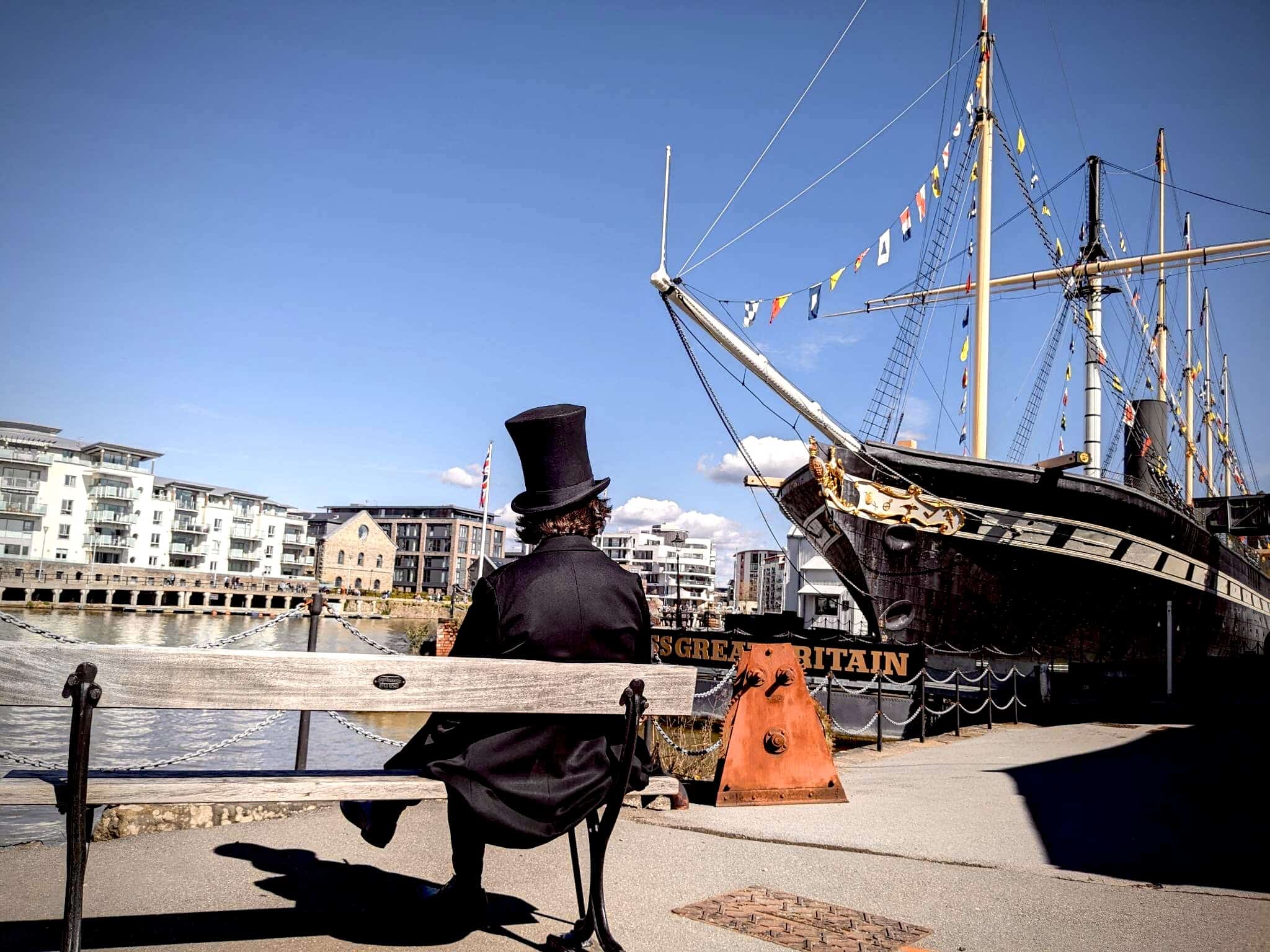When we think of Brunel it’s easy to conjure him in his prime; a resolute, tireless and slightly shabby engineer hurrying about his business of building railways, tunnels and ships. It’s much harder to imagine him as a worn, exhausted, and sick man suffering from Nephritis (Bright’s disease), but in 1858 this was very much the case. Brunel’s two doctors had the solution – the engineer should spend the winter resting in a warmer climate. Brunel reluctantly agreed to take medical advice even though his huge project, the ss Great Eastern, was incomplete, and set off for Egypt with his wife and his son, Henry.
Brunel was transfixed by the beauty of the landscape, which he described in a letter to his sister Lady Sophia Hawes:
“You arrive at a charming bay or lake of perfectly still water and studded with these singular jet-black or red rock islands. In the distance you see a continuation of the river, with distant islands shut in by mountains, of beautiful colours, some a lilac sandstone, some of the bright red yellow of the sands of the desert.”
Certainly this would have been a dramatic change from the wintry cold of Millwall’s shipyard.
In December 1858, Brunel found himself in Cairo at the same time as his great friend and rival Robert Stephenson. Throughout their careers the two engineers had supported each other’s works and more than once had gone head to head. Debates got particularly heated when each man attempted to convince parliament to adopt their configuration of rail track during the ‘Gauge War’. Their friendship prevailed, however, and in 1846 Brunel had written;
‘It is very delightful, in the midst of our incessant personal professional contests, carried to the extreme limit of fair opposition, to meet [Robert] on a perfectly friendly footing and discuss engineering points.’
The two great and very ill engineers met for dinner on Christmas Day. We don’t know what passed between them, and we are sadly unlikely to ever find out but one can speculate that the Great Eastern, on which Stephenson was advising, would have been a charged topic of conversation.
Unfortunately, the holiday had no effect on the men’s health and less than a year later both were dead. Brunel died on the 15th of September 1859 following a stroke, and Robert Stephenson died shortly after on the 12th October.
Joseph Locke, President of the Institution of Civil Engineers, spoke of his late colleagues in November of that same year;
‘Judging by the position they had each secured, and by the universal respect and sympathy which the public has manifested for their loss, and remembering the brilliant ingenuity of argument, as well as the more homely appeals to their long experience, often heard in this hall, we are well assured that they have not laboured in vain… [we have a] duty to perform; and that duty is, to honour their memory and emulate their example.’
It may be an oversimplification to say that Stephenson and Brunel lived their lives in parallel, but there is a sense of poetry in their serendipitous last Christmas together. Perhaps, as Brunel’s biographer Rolt has suggested, when Stephenson ‘bade farewell to Brunel as the latter set out on his journey up the Nile, both men may have realized that they were unlikely ever to see each other again.’
Author: Luke Holmes, Senior Interpretation Officer



